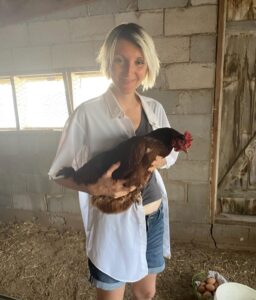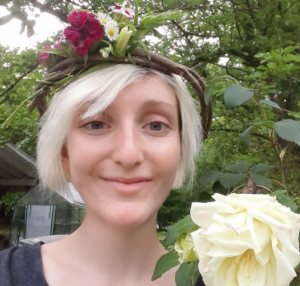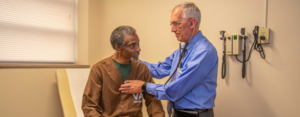
Hi again! As a quick refresher, my name is Joanne, and I am working on my MPH in Global Health. For my practicum, I am working with an interdisciplinary team of practitioners and researchers at UNC Family Medicine and Duke’s Med School (the enemy I know!). We are conducting pilot research in collaboration with the national Respite Care Providers Network, that aims to investigate Medical Respite Care (MRP) for persons experiencing homelessness (PEH). Our ultimate aim is to develop a protocol and collect mixed methods data to investigate the relationship between MRP characteristics and care experience outcomes.
My role over the summer has been as the primary data collector, getting participants to complete online surveys, phone interviews, medical chart reviews, and facility censuses. While I have experience professionally in IT project management, implementation, and training in healthcare settings, this is my first time doing qualitative research with patients, providers, and staff. This is a completely different role for me, as in past jobs I was the one directing others and designing workflows, now I am the investigator looking to learn from the participants. While the people I am interviewing are often suffering from burn out, physical, financial, and emotional stressors, they have all been enthusiastic about actually being asked about their own opinions and experiences. This has made me reflect on how marginalized populations like PEC are so often left out of the decision-making process. I hope that with this work and throughout my future career, I can continue to elevate marginalized voices in healthcare.
Since my work conducting interviews, sending emails, creating spreadsheets, and writing protocols & methods has been all remote, I have been spending quality time out on the family farm in Western Nebraska (10 miles from Wyoming). Surrounded by huge bluffs, crazy sandstorms, grazing cattle, and corn and soybeans, it can feel a little surreal that with a simple internet or phone connection I can conduct national healthcare research. From the farm, I have been working with MRPs ranging from Ohio to California. This has allowed me an interesting look at how quality and types of healthcare can vary so drastically state to state. In California, a state with more robust social services, virtually all patients have state Medicaid that helps cover the cost of MRP treatment. Contrasted to states like North Carolina, that still have not expanded state Medicaid, far fewer PEC have any way to seek care. By shining a light on these disparities, I hope this work can promote calls for action and healthcare expansion nationwide.
The final learning moment of this summer has been around flexibility. Unfortunately, I was not able to collect enough data for analysis by the practicum end date. This was a nice dose of reality that when it comes to getting poorly resourced MRPs and marginalized individuals to participate in research, the investigators need to be flexible and understanding with timelines and commitments. However, I would not trade this experience for a more cut and dry one with more traditional health care settings, since it has allowed me to highlight marginalized peoples and gaps in current healthcare systems.
-Joanne


